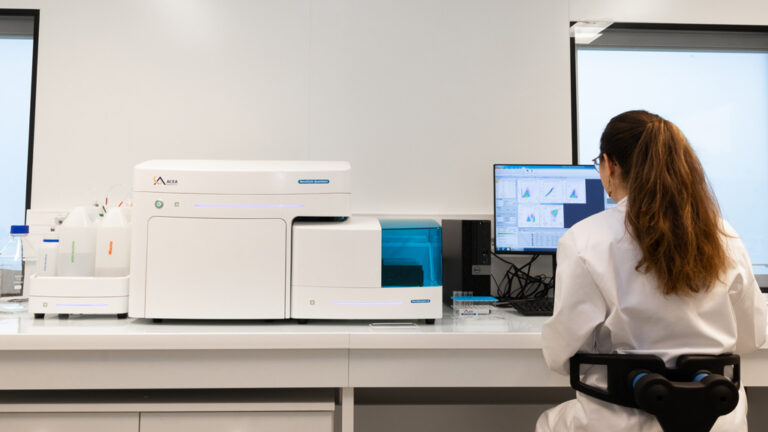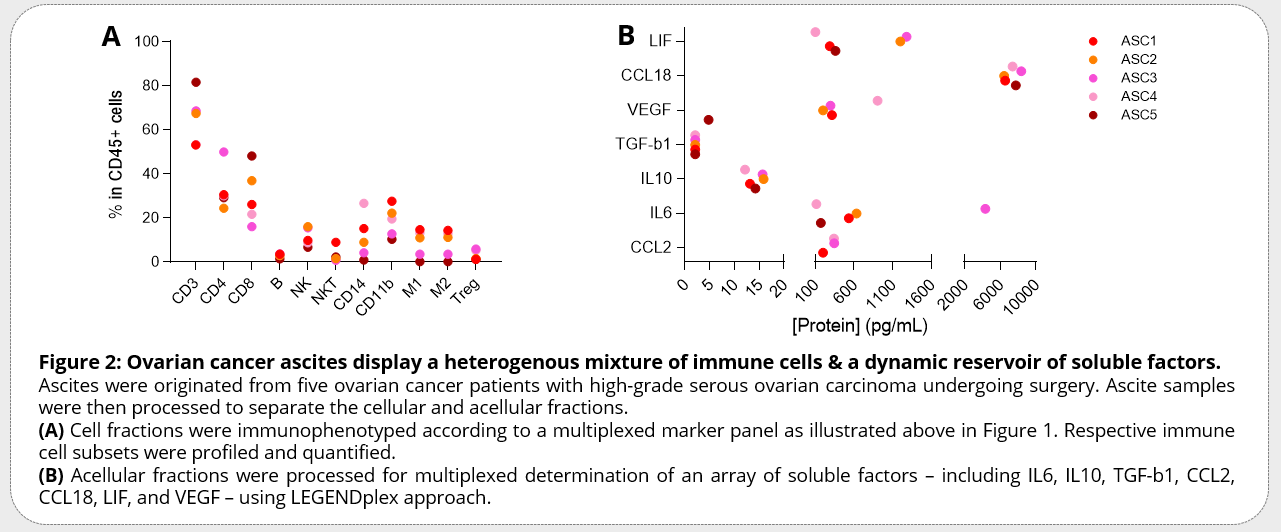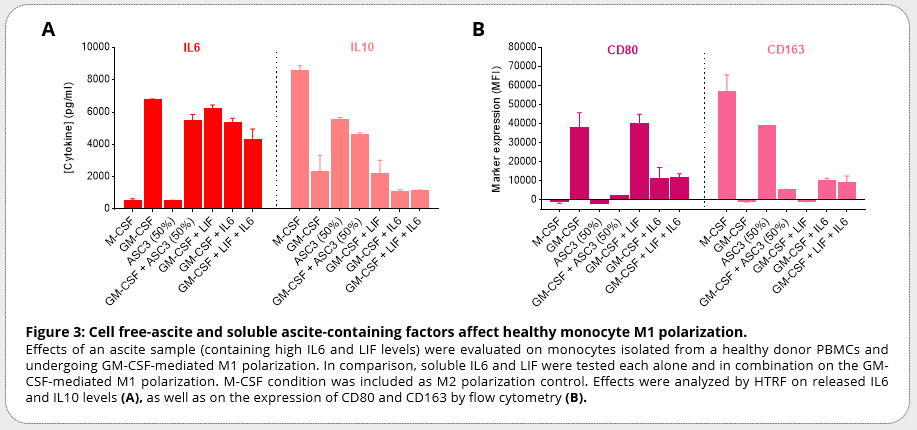Ascites is a pathological peritoneal fluid accumulation most frequently associated with ovarian cancer, among few others, thereby creating a quite unique tumor microenvironment in which cancer cells spread.
Tumor microenvironment of epithelial ovarian cancer is quite unique among solid tumors as tumor cells spread and create their malignant ascites. While Ovarian Cancer Ascites (OCA) act as a complex mixture of various cell types (immune, tumor and non-tumor) and soluble factors that mediate cell behavior, it’s now postulated that they provide a peculiar pro-inflammatory, immunosuppressive and tumor-promoting milieu. Even though some individual components of OCA have been implicated in prognosis, and that there is growing evidence that non-tumor ascitic factors contribute in driving chemoresistance, further investigations are needed for comprehensive profiling of ascites and understanding of its biological activity.
Through flow cytometry-based marker expression analysis and quantitation of soluble mediators in OCA, we investigated the immune cell population nature as well as the presence of several signaling soluble factors. While OCA is found to be enriched in major ‘immunosuppressive’ cell subsets, including T and myeloid populations, tumor-associated macrophages intriguingly exhibit a mixed phenotype characterized by elevated expression of CD163 but unrelated to M1/M2 categorization. OCA profiling also highlights a heterogeneous reservoir of enhanced soluble factors including IL6, LIF, IL10 and VEGF, and some of which – such as IL6 and LIF – have a role in the creation of an immunosuppressive milieu. In addition, we interestingly demonstrated that acellular ascite fluid as well as some ascite-containing factors affect healthy monocyte M1 polarization. Indeed, while LIF does not directly affect IL6 and IL10 levels released by the cells, IL6 alone or in co-presence with LIF, similarly to the acellular ascite fluid, decreases IL6 supernatant content, with respect to the control. These changes are concomitant with a decrease and increase in the expression of CD80 and CD163, respectively.
Our translational data bring to the fore many key opportunities that Ovarian Cancer Ascites (OCA) offer as a liquid biopsy tool, taking advantage from the crosstalk between cell components and soluble factors-mediated cues, but also as a uniquely valuable substrate to understand suppressive & resistance mechanisms, analyze the response to therapies, and identify potentially targetable markers.




